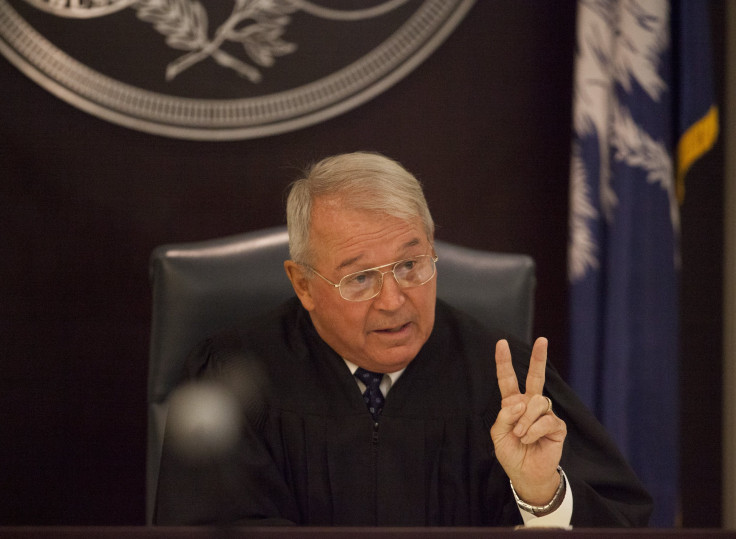Charleston Nine Shooting Update: 911 Tapes, Witness Statements Considered For Release To The Public By South Carolina Judge

Several news organizations were expected in a South Carolina court Wednesday to make the case for releasing 911 tapes and other documents in the killings of nine black worshipers at Emanuel African Methodist Episcopal Church in Charleston. Judge J.C. Nicholson of the state Circuit Court in Charleston will hear from attorneys challenging his order that prevents local authorities from releasing information about the June 17 attack, the local CBS affiliate WLTX-TV reported.
Although news outlets have argued that releasing emergency call recordings, witness statements and forensic evidence would ensure transparency in criminal justice proceedings, Nicholson is concerned that a public release of those materials would endanger the right to a fair trial for 21-year-old Dylann Storm Roof. And attorneys for the victims’ families have cited concern for their rights to privacy as a reason to keep Nicholson’s gag order in place.
The case against Roof, who is charged with nine counts of murder and faces federal hate crimes prosecution, could be jeopardized by pretrial publicity if the records are released, Nicholson said when he issued the order in July. But the judge also welcomed comment on his gag order, which he got from seven groups, including media organizations that filed Freedom of Information Act requests with state investigators, the Charleston Post and Courier newspaper reported.
Dispatcher recordings, 911 calls and police reports are routinely made available to the public in the U.S. after violent crimes. The records typically help shed light on authorities’ response to crimes.
Roof's attorneys last week filed a motion with Nicholson seeking access to the prosecutor’s evidence in the shooting. Public Defender Ashley Pennington requested all documents, tangible objects, witness statements, physical evidence and police recordings, the Post and Courier reported.
It was unclear when the judge would rule on the motion. The request is a procedural move typical of criminal cases.
© Copyright IBTimes 2024. All rights reserved.






















